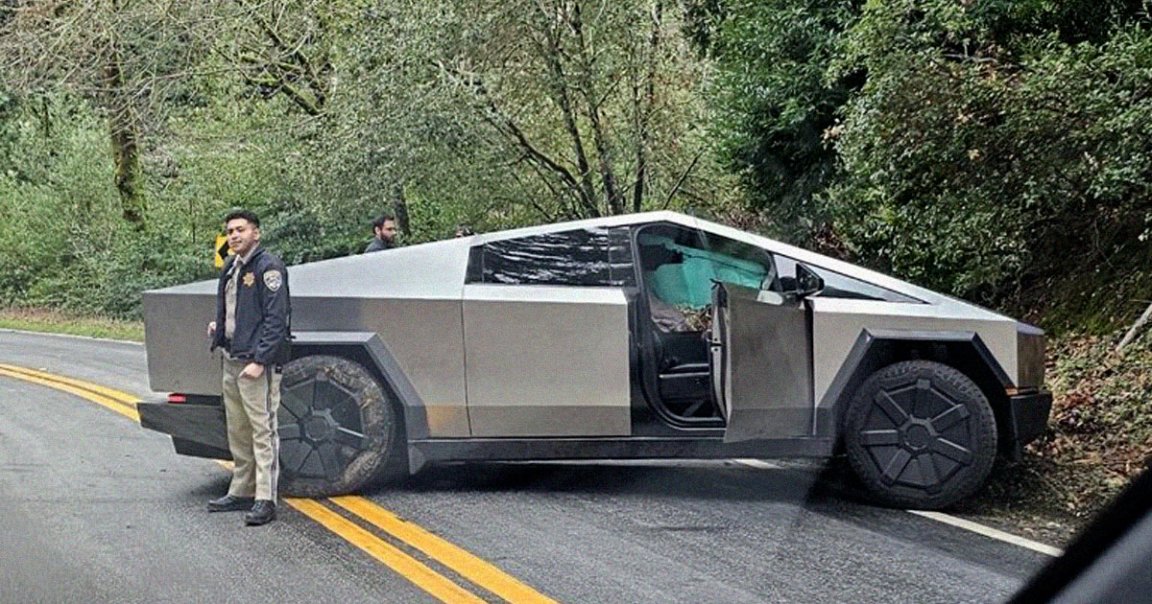
It was only a matter of time before the first Tesla Cybertruck was involved in a collision.
And just before the year drew to a close, a Toyota Corolla crashed into a Cybertruck that was traveling along a road near Palo Alto, California — an accident that’s attracted immense scrutiny due to the Cybertruck’s unconventional and widely criticized design.
According to a statement released by the California Highway Patrol, the Toyota swerved and hit a dirt embankment on the right shoulder, reentered the road shortly, crossed the double yellow lines, and crashed into a Cybertruck, which was traveling the other way.
The Tesla driver “sustained a suspected minor injury,” and “declined medical transportation.” No other “injuries were reported,” per the CHP, suggesting the Corolla driver walked away unscathed despite images showing the vehicle’s airbags deploying.
“It does not appear that the Tesla Cybertruck was being operated in autonomous mode,” the statement reads.
While we await further details regarding the injuries and the investigation is still “ongoing,” the crash highlights the potential risks of driving a vehicle as stiff as the Cybertruck. For decades, carmakers have designed vehicles to have crumple zones, which protect the driver during a collision. The Cybertruck, on the other hand, whose design is a notable departure from conventional car composition and materials, has raised concerns among experts.
Apart from potential risks for the driver, experts have also pointed out concerns over pedestrian safety. The 6,600-pound EV has extremely limited sight lines and lacks visibility of what’s going on in front of the vehicle — and that’s without getting into its ultra-hard exterior.
“The big problem there is if they really make the skin of the vehicle very stiff by using thick stainless steel, then when people hit their heads on it, it’s going to cause more damage to them,” Adrian Lund, the former president of the Insurance Institute for Highway Safety (IIHS), told Reuters last month.
European regulators have also expressed similar concerns, and the truck is more than likely never making it across the pond.
Tesla, however, has maintained that the Cybertruck is much safer for those behind the wheel and others sharing the road.
“Yes, we are highly confident that Cybertruck will be much safer per mile than other trucks, both for occupants and pedestrians,” CEO Elon Musk tweeted .
The company has also claimed that the truck’s “front underbody casting is designed to break into small pieces,” which “helps reduce occupant impact by absorbing and dispensing energy.”
Tesla only began delivering Cybertrucks to long-waiting customers late last year, and only time will tell whether it’s a “guideless missile” or the latest and greatest in driver safety.
While experts have long voiced their concerns over the truck’s unorthodox design, the rest of the EV maker’s offerings have been lauded for being some of the safest cars in the world.
We’ll need far more data to say for sure, but this first accident isn’t necessarily promising for the brutalist pickup.
More on the truck: Cybertruck Manufacturing Is a Disaster, Tesla Insiders Say